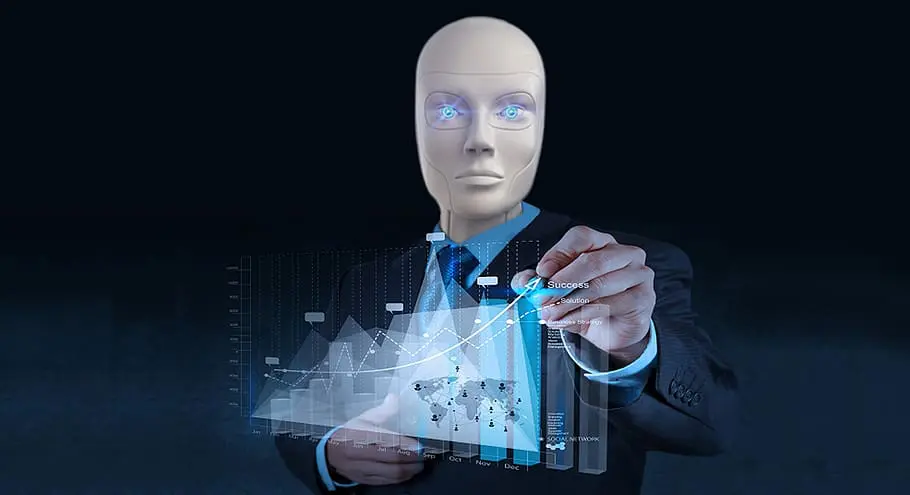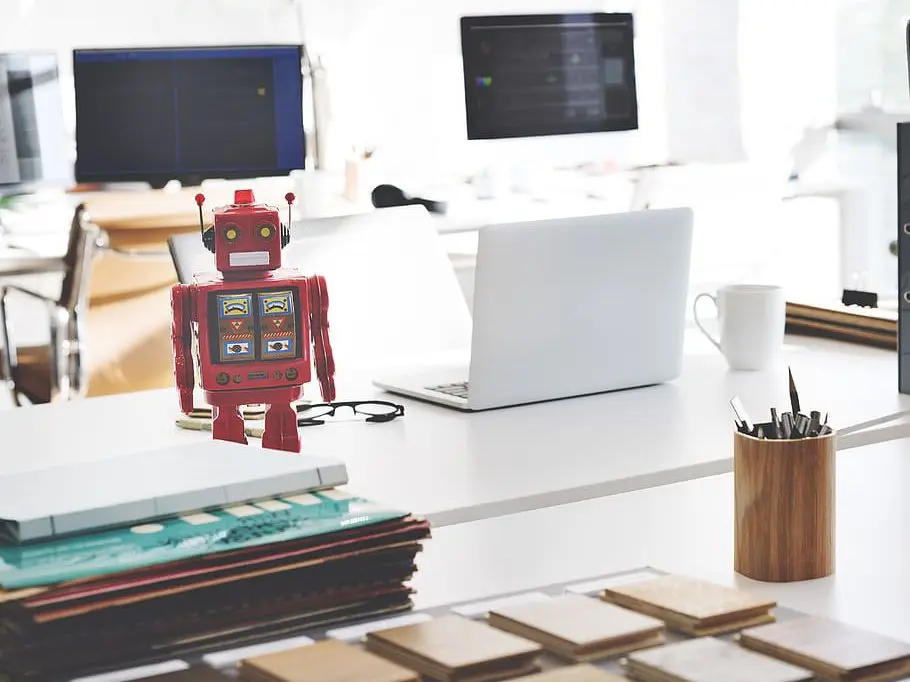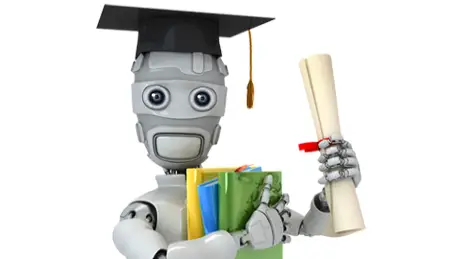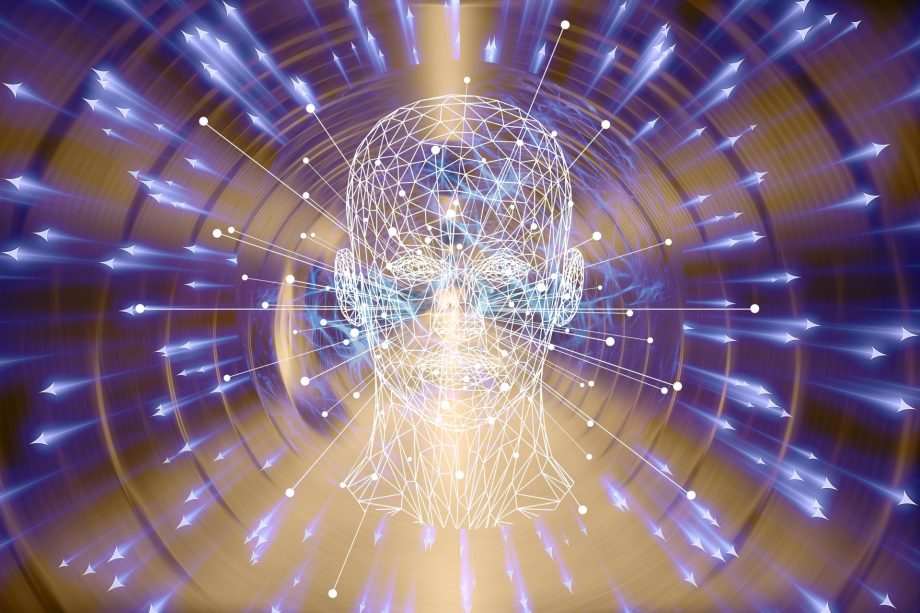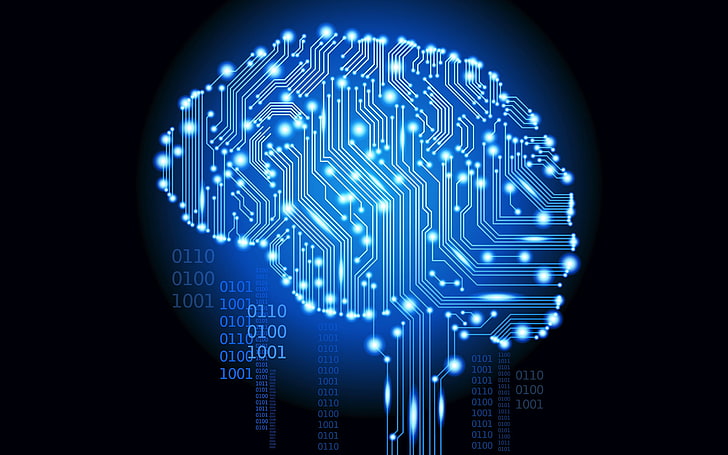
Explore the intriguing intersection of ethics and AI in our latest blog post. Discover how ethical considerations shape AI’s impact on society and the future.
Diving into the world of artificial intelligence is like opening a door to the future.
But as we step through that door, we carry with us a crucial guide – ethics.
In this journey, ethics and AI go hand in hand, shaping our path forward.
So, let’s embark on this exploration together, unraveling the intricate relationship between these two fascinating realms.
Ethics and AI: A Closer Look at ChatGPT

Welcome aboard as we navigate the intriguing waters of ethics and AI. This isn’t just about technology, it’s about the moral compass guiding its use.
We’ll delve into the ethical implications of AI, its role in decision-making, and its impact on society and the workforce.
We’ll also gaze into the crystal ball to discuss the future of AI and ethics.
And yes, we’ll tackle your burning questions in a comprehensive FAQ section.
So, buckle up for an enlightening journey into the heart of AI and the ethical principles that keep it in check.
The Concept of Ethical AI
Let’s start with the concept of ethical AI. It’s like teaching a robot the difference between right and wrong.
Ethical AI is about designing and using AI systems in a way that respects our values and norms.
It’s about ensuring fairness, transparency, and accountability in AI systems.
It’s not just about what AI can do, but what it should do. It’s about making sure AI is used to enhance our lives, not harm them.
The Importance of Ethical Considerations in AI Development and Use
Now, onto the importance of ethical considerations in AI development and use.
Imagine building a house without a blueprint. It’s likely to collapse, right?
The same goes for developing and using AI without considering ethics.
It’s not just about creating powerful AI systems, but about ensuring these systems are built and used in a way that respects human rights, promotes fairness, and avoids harm.
Ethical considerations are the blueprint that guides us in creating AI that is beneficial and safe.
The Potential Risks and Challenges of AI in Relation to Ethics
Finally, let’s talk about the potential risks and challenges of AI in relation to ethics.
Like any powerful tool, AI comes with risks. There’s the risk of bias, where AI systems might unfairly favor one group over another.
There’s the risk of privacy invasion, where AI systems might intrude on people’s personal lives.
And there’s the risk of misuse, where AI might be used in harmful ways.
These are complex challenges that require careful thought and action.
But by acknowledging these risks and working to address them, we can steer the course of AI toward a future that is ethical and beneficial for all.
The Ethical Implications of AI
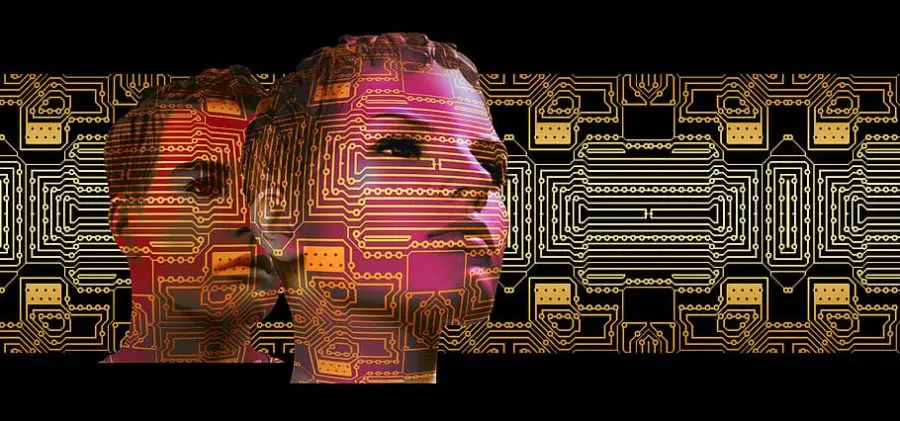
As we delve deeper into our journey, we find ourselves at the crossroads of technology and morality and the ethical implications of AI.
It’s like stepping into a science fiction novel, but this is our reality.
From the algorithms that dictate our social media feeds to the AI systems making decisions in healthcare, finance, and more, the ethical stakes are high.
So, let’s roll up our sleeves and dive into the fascinating, and sometimes complex, ethical landscape of artificial intelligence.
The Concept of Ethical AI
Let’s start with the concept of ethical AI. It’s like teaching a robot the difference between right and wrong.
Ethical AI is about designing and using AI systems in a way that respects our values and norms.
It’s about ensuring fairness, transparency, and accountability in AI systems.
It’s not just about what AI can do, but what it should do. It’s about making sure AI is used to enhance our lives, not harm them.
The Importance of Ethical Considerations in AI Development and Use
Now, onto the importance of ethical considerations in AI development and use. Imagine building a house without a blueprint. It’s likely to collapse, right?
The same goes for developing and using AI without considering ethics.
It’s not just about creating powerful AI systems, but about ensuring these systems are built and used in a way that respects human rights, promotes fairness, and avoids harm.
Ethical considerations are the blueprint that guides us in creating AI that is beneficial and safe.
The Potential Risks and Challenges of AI in Relation to Ethics
Finally, let’s talk about the potential risks and challenges of AI in relation to ethics.
Like any powerful tool, AI comes with risks. There’s the risk of bias, where AI systems might unfairly favor one group over another.
There’s the risk of privacy invasion, where AI systems might intrude on people’s personal lives.
And there’s the risk of misuse, where AI might be used in harmful ways.
These are complex challenges that require careful thought and action. But by acknowledging these risks and working to address them, we can steer the course of AI toward a future that is ethical and beneficial for all.
AI and Decision Making

Now, let’s turn our attention to a fascinating aspect of AI its role in decision-making.
It’s like having a super-smart assistant who can analyze vast amounts of data and make informed decisions in a split second.
But as with any powerful tool, it comes with responsibilities. How does AI make decisions?
What ethical concerns arise in AI decision-making? These are intriguing questions that take us to the heart of the AI revolution.
So, let’s dive in and explore the world of AI and decision-making.
How AI is Used in Decision-Making Processes
Imagine having a supercomputer in your pocket that can analyze vast amounts of data in a split second.
That’s essentially what AI does in decision-making processes.
From recommending your next movie on Netflix to predicting stock market trends, AI is used to analyze data, identify patterns, and make decisions based on that analysis.
It’s like having a crystal ball that can predict the future, but it’s not magic it’s mathematics, algorithms, and computing power.
AI can process more information and make more complex decisions than any human could, making it an invaluable tool in many fields.
The Ethical Concerns in AI Decision Making
Now, let’s talk about the ethical side of things. With great power comes great responsibility, and AI is no exception.
The ethical concerns in AI decision-making are numerous and complex.
For instance, how do we ensure that AI decisions are fair and unbiased?
How do we protect people’s privacy when AI is analyzing their data?
How do we ensure transparency in AI decision-making when the algorithms are often so complex?
These are just a few of the ethical questions that arise in AI decision-making.
Addressing these concerns is crucial to ensuring that AI is used responsibly and ethically.
The Role of AI in Society

As we continue our journey, we find ourselves exploring the role of AI in society.
It’s like a new character entering the stage of our daily lives, bringing with it a mix of applause and apprehension.
From streamlining our work processes to predicting weather patterns, AI is leaving its digital footprints everywhere.
But what does this mean for us as a society? What are the positive impacts and potential negative consequences?
And how do ethics come into play? Let’s delve into these questions and more as we explore the role of AI in our society.
The Positive Impacts of AI on Society
Let’s start with the good news. AI has the potential to bring about significant positive impacts on society.
Think about how AI is revolutionizing healthcare, with algorithms that can predict diseases and assist in treatment plans.
Or consider how AI is transforming education, with personalized learning platforms that adapt to each student’s needs.
AI can also help address complex societal issues, like climate change, by analyzing data and predicting trends.
It’s like having a super-powered ally in our quest for a better world.
The Potential Negative Consequences of AI on Society
However, like any powerful tool, AI also has the potential for negative consequences.
For instance, there are concerns about job displacement due to automation.
There are also issues related to privacy and data security, as AI systems often rely on large amounts of personal data.
And there’s the risk of AI systems being used in harmful ways, such as in the creation of deepfakes or autonomous weapons.
It’s a reminder that every coin has two sides, and we need to be mindful of both.
The Ethical Considerations in Mitigating These Negative Impacts
This brings us to the ethical considerations in mitigating these negative impacts.
Ethics is like the guiding star in our journey with AI. It helps us navigate the potential pitfalls and ensure that we use AI in a way that respects human rights and values.
This involves designing AI systems to be transparent and accountable, ensuring that they are used responsibly, and putting in place safeguards to protect against misuse.
It’s about striking the right balance between leveraging the benefits of AI and managing its risks.
AI presents three major areas of ethical concern for society: privacy and surveillance, bias and discrimination, and perhaps the deepest, most difficult philosophical question of the era, the role of human judgment. https://news.harvard.edu/gazette/story/2020/10/ethical-concerns-mount-as-ai-takes-bigger-decision-making-role/
AI and the Workforce

Next on our journey, we’re exploring the dynamic between AI and the workforce.
It’s like introducing a new player into the game, one that’s changing the rules and reshaping the field.
AI is not just a tool we use; it’s becoming a part of the teams in various industries, taking on tasks, and even creating new roles.
But what does this mean for the workforce? How does AI impact job displacement and creation? And what are the ethical considerations?
Let’s roll up our sleeves and delve into the intricate relationship between AI and the workforce.
The Impact of AI on Job Displacement and Creation
Let’s start with a topic that’s often in the headlines, the impact of AI on job displacement and creation.
It’s like a game of musical chairs, with AI joining in and changing the rhythm. On one hand, AI has the potential to automate certain tasks, which could lead to job displacement.
But on the other hand, AI is also creating new jobs that didn’t exist before, like AI ethics officers and data scientists. It’s a complex dance, with AI both taking and giving in the job market.
Ethical Considerations in AI and Employment
Now, let’s turn to the ethical considerations in AI and employment. It’s like a balancing act, ensuring fairness and respect in a changing landscape.
How do we ensure that the transition to an AI-driven workforce is fair and inclusive?
How do we protect workers’ rights in the face of automation? And how do we prepare the workforce for the jobs of the future?
These are just a few of the ethical questions we need to consider as we navigate the evolving relationship between AI and the workforce.
The Future of AI and Ethics

As we near the end of our journey, we find ourselves gazing into the future, the future of AI and ethics.
It’s like standing on the edge of a vast, unexplored territory, full of potential and uncertainties. How will AI continue to evolve?
What role will ethics play in shaping this future? And how can we navigate the potential challenges that lie ahead?
These are profound questions that invite us to think deeply and imagine boldly.
So, let’s step into the future and explore what it might hold for AI and ethics.
The Role of Ethics in the Future Development of AI
As we look toward the future, ethics will play a crucial role in the development of AI.
It’s like a compass guiding us through uncharted territory. Ethics will help us navigate the complex decisions involved in designing and using AI.
It will ensure that as AI becomes more powerful and pervasive, it is used in a way that respects human rights, promotes fairness, and benefits society.
Ethics will be the touchstone that helps us ensure that the future of AI is a future we want to live in.
The Potential Future Ethical Challenges and How They Can Be Addressed
But the path ahead is not without challenges. As AI continues to evolve, new ethical issues will undoubtedly arise.
These could range from questions about AI autonomy and rights to concerns about AI-enhanced cyber threats, to the societal impacts of superintelligent AI.
It’s like a series of hurdles on the track to the future. But by anticipating these challenges and proactively addressing them, we can ensure that we navigate the future of AI ethically and responsibly.
This will involve ongoing dialogue, rigorous research, thoughtful policy-making, and above all, a commitment to putting ethics at the heart of AI.
Ethics and AI FAQs
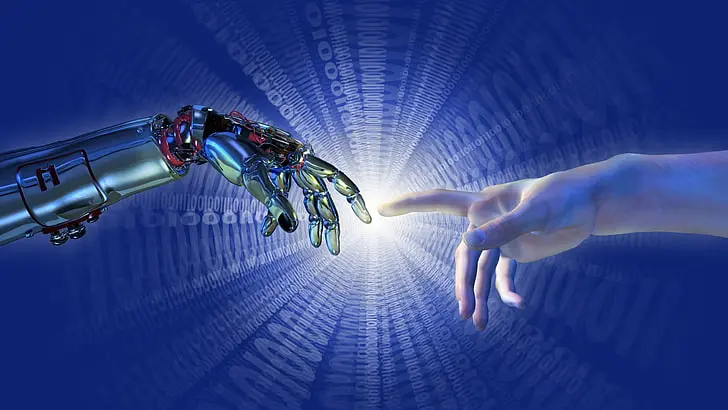
As we round off our exploration, let’s address some frequently asked questions about ethics and AI.
It’s like a Q&A session after a fascinating lecture, where we get to delve deeper into the topics that have sparked our curiosity.
From understanding the main ethical concerns with AI to exploring how ethical AI can be achieved, these FAQs will help clarify some of the key points we’ve discussed.
So, let’s dive into these questions and shed some light on the intriguing world of ethics and AI.
Q: What are the main ethical concerns with AI?
A: The main ethical concerns with AI revolve around issues of privacy, bias, transparency, and accountability.
There are concerns about how AI uses and protects personal data, how it can inadvertently perpetuate existing biases, and how its decision-making processes can be made transparent and accountable.
Q: How can ethical AI be achieved?
A: Achieving ethical AI involves designing and using AI in a way that respects human rights, promotes fairness, and benefits society.
This includes ensuring transparency in AI decision-making, mitigating biases in AI systems, and putting in place safeguards to protect against misuse.
Q: What is the role of AI in society and what are the ethical implications?
A: AI plays a significant role in society, from automating tasks and analyzing data to making predictions and decisions.
The ethical implications include the need to ensure fairness, protect privacy, maintain transparency, and hold AI systems accountable for their actions.
Q: How is AI related to ethics?
A: AI is related to ethics in that the design, development, and use of AI systems involve ethical considerations.
These include respecting human rights, promoting fairness, ensuring transparency and accountability, and mitigating potential harms.
Q: Can artificial intelligence have ethics?
A: AI itself does not have ethics in the way humans do, as it does not have feelings, consciousness, or moral understanding.
However, the design, development, and use of AI systems should be guided by ethical principles to ensure that they are used responsibly and beneficially.
Q: What are some AI ethics?
A: Some key principles in AI ethics include respect for human rights, fairness, transparency, accountability, and beneficence.
These principles guide the design, development, and use of AI systems to ensure that they are used in a way that is beneficial and respectful to humans.
Q: What are ethics and bias in AI?
A: Ethics and bias in AI refer to the ethical considerations around how AI systems can inadvertently perpetuate existing biases.
This can occur when the data used to train AI systems reflects societal biases.
Ethical AI involves taking steps to identify and mitigate these biases to ensure fairness.
Ethics and AI Conclusion
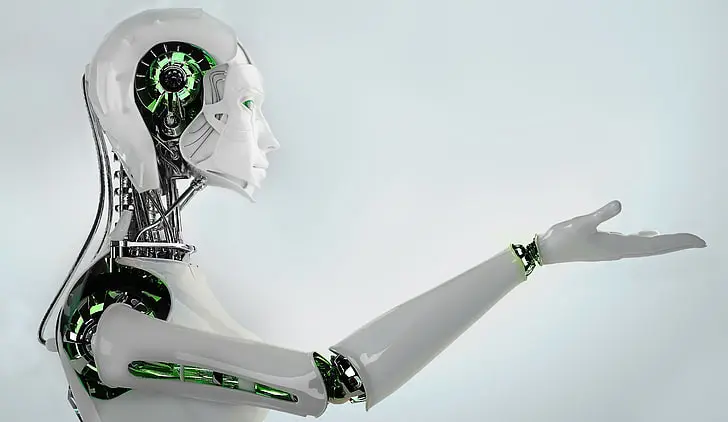
As we draw our exploration to a close, let’s take a moment to reflect on our journey through the landscape of ethics and AI.
It’s like standing at the top of a hill, looking back at the path we’ve traversed and the vistas we’ve discovered.
From understanding the role of ethics in AI to exploring its implications for society and the workforce, we’ve covered a lot of ground.
But as we’ll see in our conclusion, this is just the beginning of an ongoing conversation about how we can navigate the future of AI in an ethical and responsible way.
So, let’s tie together the threads of our discussion and consider the way forward.
Recap of the Main Points Discussed
As we look back on our journey, we’ve explored a range of topics.
We started with an introduction to AI and its ethical implications, delving into the concept of ethical AI, its importance, and the potential risks and challenges.
We then examined how AI is used in decision-making processes and the ethical concerns this raises.
We also discussed the role of AI in society, considering both its positive impacts and potential negative consequences, and the ethical considerations in mitigating these impacts.
We explored the impact of AI on the workforce and the ethical considerations in AI and employment.
Finally, we looked ahead to the future of AI and ethics, discussing the role of ethics in the future development of AI and potential future ethical challenges.
Final Thoughts on the Importance of Ethics in AI
As we conclude, it’s clear that ethics plays a crucial role in AI.
It’s the compass that guides us through the complex landscape of AI, ensuring that as AI becomes more powerful and pervasive, it is used in a way that respects human rights, promotes fairness, and benefits society.
The journey through the world of AI and ethics is a challenging one, filled with complex questions and difficult decisions.
But it’s also a journey filled with potential, offering us the opportunity to shape a future where AI is used ethically and responsibly.
As we continue this journey, let’s keep the conversation going, exploring, questioning, and learning together.

